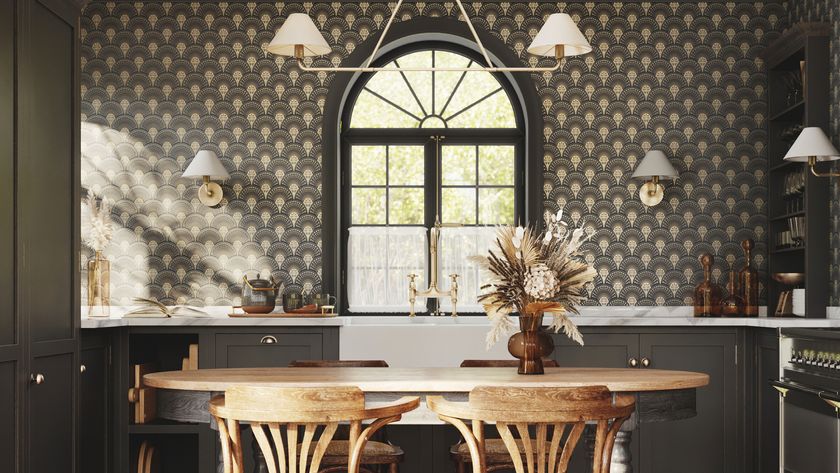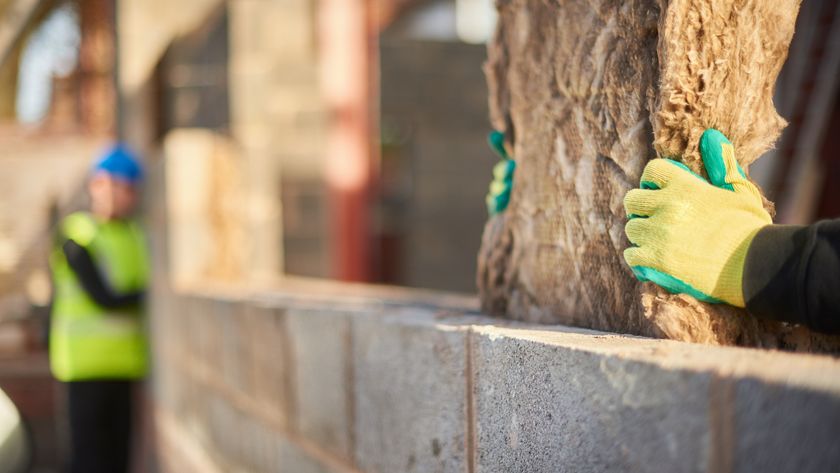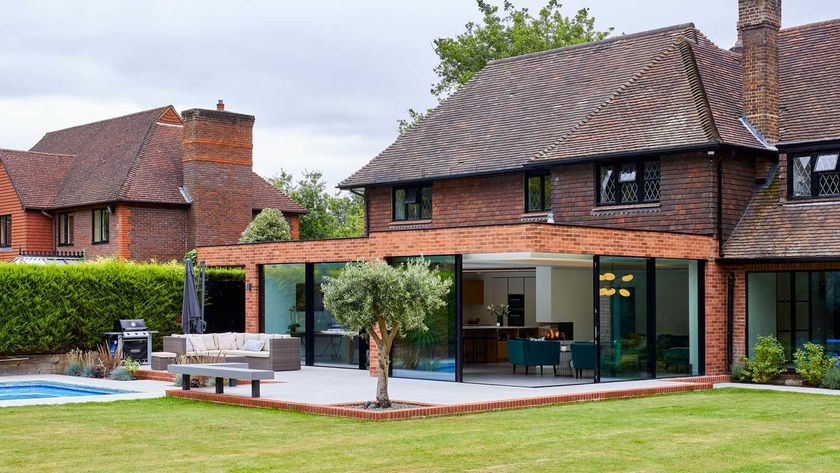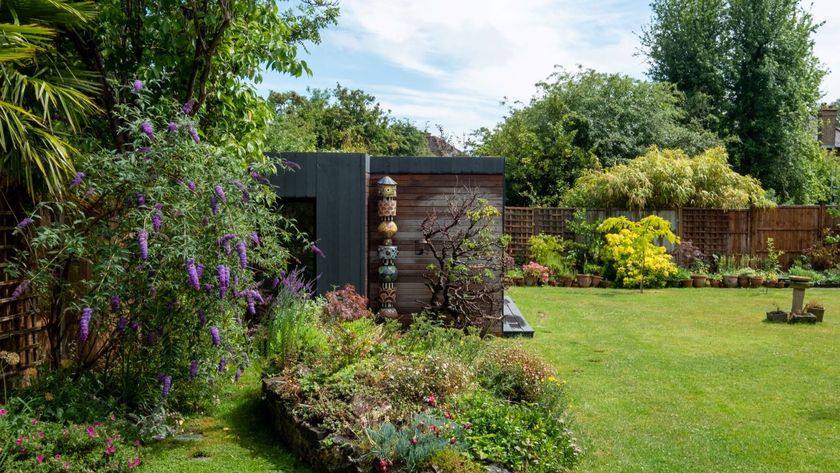Planning Consultants Guide: Do You Need One?
Find out when a planning consultant might be worth bringing on board your project. Plus, where to find a good one and how much to expect to pay

When it comes to knowing the finer details of planning permission, a planning consultant is the expert to call on. But, what can they bring to a project and how can they help you?
You might want to build a single-storey extension, convert your garage into a granny annexe or entirely remodel your house, or to build a new home from scratch. Whatever you want to do; everything depends upon the planning permission.
So, a planning consultant can help navigate and provide advice on:
- Preparing and submitting planning applications
- Appeals against refusal of planning permission
- Advising on potential development opportunities through site appraisals and development Feasibility Studies
- Representing clients’ interests in public inquiries
- Environmental impact assessments
- Master plans and urban design studies
- Policy research
- Public consultation and involvement
- Enforcement notices
- Certificates of lawfulness
Planning consultants are part of a group of professionals which includes quantity surveyors, energy assessors and many more – project managers might also be on that list – but their involvement can be the making of a project and, conversely, their lack of involvement can be the breaking of it, for sure.
The use of planning consultants in the world in which we operate is becoming more widespread thanks in many ways to the increased complexity and ever-changing nature of our planning system. Even if you’re fairly sure of the success of your case, you’ve got to be able to play the politics of the actual application process itself cleverly — this is the world of committees, officers, Community Infrastructure Levies, Section 106 agreements and, quite possibly, appeals.
Yet the problem that many self builders and renovators face is that while the default advice is to hire all the professionals you can get your hands on to make your project a success, you don’t want to over-egg the omelette; and, of course, you don’t want to spend money unnecessarily. So how to proceed?
(MORE: Secrets to Planning Success)
When Do I Need a Planning Consultant?
There are many instances when the use of a planning consultant is advisable. Bear in mind that their knowledge of the ever-changing spectrum of planning policies and ability to see the ‘big picture’ can certainly trump the advice of an architect and, in some cases, that of a local planning officer.
In the first instance, a consultant should be used when trying to weigh up the development potential of what you might think is a building plot in the making. Shelling out a few hundred pounds for a Feasibility Study before committing to the purchase of a property is a very wise investment.
“It is really valuable to have a planning consultant on board at the outset, to advise whether it is worth buying a site or not,” says Deirdre Wells from Red Kite Development Consultancy. “This is a major area of skills, and in many cases my advice would be to walk away from what looks to the man in the street to be a safe bet, and find another site, because for (sometimes obscure) policy reasons it has no prospects. It is alarming how complex planning policies are, and how quickly they change.”
The Feasibility Study might not just put you off a potential development, however; the knowledge that a planning consultant brings to the party could unlock opportunities that you, and other potential purchasers, hadn’t thought of (e.g. advising that the site might be suitable for several homes rather than a less lucrative one-off).
Feasibility Studies can often be carried out within a few days of being commissioned and tend to give an accurate indication of the general prospects offered by a site in the context of local and national planning policies, as opposed to a detailed analysis of an individual scheme. Most planning consultants will offer one, and you should expect to pay a fixed fee of between £500-1,000. However some planning consultants will offer an ‘audit’ of your chances – a kind of Feasibility Study lite – for around £100-300. Do not expect great detail, but it is a more cost-effective way of seeing the lie of the land in planning terms.
The usual course of action for a self builder or renovator looking to gain approval for their scheme is to rely on their architect to manage the process. However, while architects may have some experience in handling difficult planning applications, dealing with planning policies, local plans, updates to the planning landscape and so on is not their day job. So, in cases where a planning application might be controversial, a consultant is likely to be a valuable addition to the team.
Martin Hall of RIBA award-winning Hall & Bednarczyk, used a planning consultant to manage the application for Carreg a Gwydr, a very contemporary replacement dwelling that won the Daily Telegraph Homebuilding & Renovating Awards in 2012. “A planning consultant was bought on after the initial proposal was rejected. We sensed we were entering choppy waters and needed some expert help,” he explains. “In our case the planning consultant was able to shape the argument in terms that appeal inspectors were comfortable with — in grounded, policy-based language rather than emotional argument. A consultant can bring tremendous reassurance that there is someone on board with a breadth of experience and complete understanding of planning policies, particularly as at the moment there is so much policy change around. Architects are unlikely to be conversant with everything that’s going on.” The project was finally allowed on appeal.
Deidre Wells takes up the story. “More than anything, the experience a planning consultant brings enables them to come up with new ideas, and strategies to get the client what (s)he wants, even if it takes a staged approach. In some cases, for example, it may be necessary to get a certificate confirming that existing uses are lawful, before progressing to a new build or conversion. This requires a lot of research, legal interpretation and guidance on obtaining Statutory Declarations, but can then ease the project through to success.
“Many independent consultants have worked for both local authorities and private clients, and understand in advance what problems are likely to be met, and so can head them off in advance.”
When Can I Avoid Using a Planning Consultant?
Not every project needs a consultant and many – even some of the more controversial – don’t use one at all.
Architect Martin Hall says: “The value of the planning consultant to the project depends on the reason why there are issues. If the issues of controversy are design-based, then actually an architect can still be the critical player; whereas if it’s policy-based, the consultant becomes more central. Whether to take on board a planning consultant is a very nuanced argument, not least because in my opinion you can have too many experts at this stage for individual home projects.”
It’s not so much the size of the project that demands the use of a consultant, it’s more a case of the potential (for both trouble and expanded opportunity) that decides whether you need to use one or not.
There is a large amount of research that you can carry out yourself in order to come to your own conclusions on the viability of a development. All local authorities will have a Local Plan that is available for viewing on their website. This Local Plan will be the major material consideration against which your application is assessed.
Read the individual policies that relate to your site (e.g. green belt, re-use of rural buildings in the countryside, etc.) and see how your own proposal stacks up. Search the website for previous applications on that site in the past. Read the National Planning Policy Framework to see how your proposal relates.
However, the problem with all of this is that you can only get the full, latest picture from experts who have dealt with the implementation of these policies and plans on the ground in recent months — and in many cases know the planning officers on first name terms. You might decide that spending £100-500 on pre-application advice from your local planning authority is a better way of spending the money. In some cases you’ll be right, but a local case planning officer is unlikely to be able to provide anything other than a straightforward interpretation of the rules and how they apply to your proposal; a consultant will know the workarounds and can unlock serious potential.
As suffering a refusal on a site can be hugely detrimental to its chances of gaining approval later on, it pays to engage with a consultant from the very start of the process. As Deirdre Wells puts it: “Planners often have to help architects and clients after a first refusal, and usually succeed at the second attempt.” The key is, however, to understand that you don’t always need one. “The use of a planning consultant can best be justified when there is a complex planning scenario — simple situations don’t necessarily lend themselves to an overhanded approach,” says Martin Hall. “When applications are at committee stage, the members of the committee might actually react better to the human approach of the applicant; likewise, a professional would be more appropriate when presenting to inspectors.”
But, given the chance of extra work, won’t a planning consultant who has been approached by a self builder with a no-hoper be inclined to talk up its prospects in order to get a bit of work? Not according to Deirdre. “Frankly, we have better things to be doing than getting involved in schemes where we are not required, and will tell a client that (s)he can manage without us if a case is very straightforward. The only times I have seen planning consultants employed needlessly, is to write an objection to another person’s scheme – which simply repeats objections and adds references – where a simpler letter would have done the job. We have a professional duty of care, and take it very seriously.”
How Do I Find a Good Planning Consultant?
In many ways it’s the same as dealing with other professionals on your project — recommendation goes a long way. Local knowledge is highly beneficial and as a result you should search the RTPI’s register for the nearest consultants to sound out. There aren’t actually a huge number of planning consultants around (often no more than a handful in each local authority and in the case of the author’s, the one consultant found through the RTPI’s online search facility was “too busy to take on new work” and recommended the next most local consultant in another town 15 miles away, who never returned our calls). So you’re not going to be blessed with a lot of choice.
You can also get local recommendations by checking out who’s involved in successful local planning applications (you could even take a chance and ring up the planning department). Many local architects and developers will have experience of using consultants too, so if you have access to them, get some more names.
Some planning consultants are not really experienced in dealing with one-off projects preferring, instead, to spend their time working for larger developers on more lucrative large-scale housing and commercial schemes. Don’t also be attracted by the sheer size of the practice. One of the worst mistakes is to choose one of the bigger firms for your relatively modest project who will then put one of the juniors on to it, often resulting in a fairly unsatisfactory experience. Much better to have an experienced local one-man-band operation who can handle the work and devote some serious time to you.
You should ensure that your consultant is Chartered (i.e. a member of the RTPI) as this means they will adhere to a code of conduct and, crucially, will have Professional Indemnity insurance.
How Much Will a Planning Consultant Cost?
Fees range from around £100 to £300 per hour, although the equivalent day rates are more likely given the time involved.
The usual arrangement is for a fixed fee agreed in advance based on hourly rates, with a top up for unusual upsets. Charges vary dependent on skills and experience as well as local factors and scheme issues, but expect to pay around £2- 2,500 for handling a simple application, and a similar amount for an appeal. Higher costs come with more complex projects, or those that require engagement with the planning authority over a long period. Some consultants will be happy to arrange a ‘ceiling’ figure based on their estimate of the work involved. Pre-purchase Feasibility Studies are likely to cost in the region of £1,000 although some consultants will offer a ‘desktop’ audit for considerably less.
Self builds and even some major renovations can incur a frighteningly high liability for Community Infrastructure Levy, Affordable Housing Contributions and Section 106 Agreements. As consultant Deirdre Wells says: “Planning consultants will ensure that these costs are kept to the minimum, and where possible secure a phasing arrangement so that payments can be spread over a project. I have lost count of the times when a client advised at the outset by an architect has complied with a ‘requirement’ to make contributions which a consultant can see are unjustified, or can be substantially reduced.”
In one case Deirdre related, a local small builder (with a backer) approached an architect to design a scheme involving converting a vacant pub into a house, and building extra units in the pub garden. Unfortunately, this triggered a requirement for huge Section 106 Agreement payments, and annoyed locals who wanted to keep the pub. The scheme hit the buffers several months down the line.
A planning consultant was brought on board, who developed a strategy which gained support from the Parish Council and local neighbours, made a compelling case for the loss of the pub not causing any harm to the community, and also negotiated a considerable reduction in infrastructure payments of over £100,000 — and secured staged payments rather than all upfront.
(MORE: How to Win Over Your Parish Council)
How to Make a Decision: A Planning Consultant's Advice
Planning consultant Ken Dijksman shares his advice:
"My advice is that if your scheme involves a significant financial investment that you ought at the very least to purchase one or two hours of initial planning advice from a consultant to identify potential problems and opportunities arising from what you intend to do.
"A good planning consultant is, at worst, an insurance policy against planning problems; a cost that you would rather avoid and that you hope will prove unnecessary, rather like health insurance on holiday. At best, a planning consultant will guide you to either avoid the need for planning permission at all, or to approach your planning application scheme in a way that will maximise the likelihood of success and if things do go wrong, they will fight your corner."
Get the Homebuilding & Renovating Newsletter
Bring your dream home to life with expert advice, how to guides and design inspiration. Sign up for our newsletter and get two free tickets to a Homebuilding & Renovating Show near you.

The former Editor of Homebuilding & Renovating magazine, Jason is an experienced self builder and has recently finished renovating his 1960s home. Jason is now Managing Director of Future PLC's Homes' portfolio, which includes UK-leading titles such as Ideal Homes, Livingetc and Homes & Gardens. He is also the author of The Self Build Dream. You can catch Jason in the seminar theatres and Advice Centre at many of the Homebuilding & Renovating Shows across the UK.











